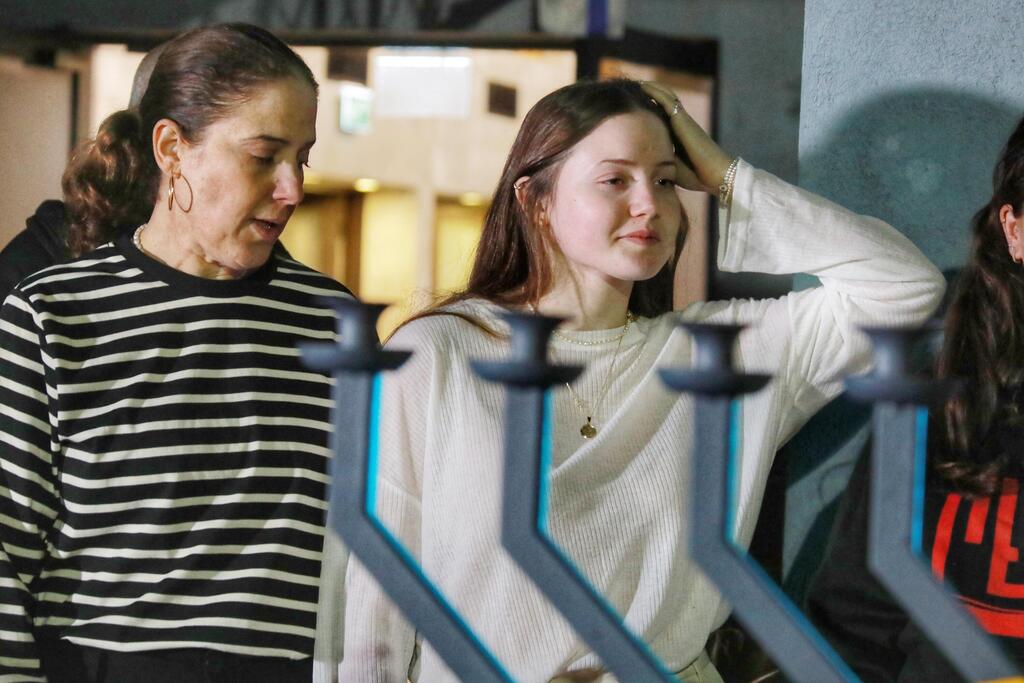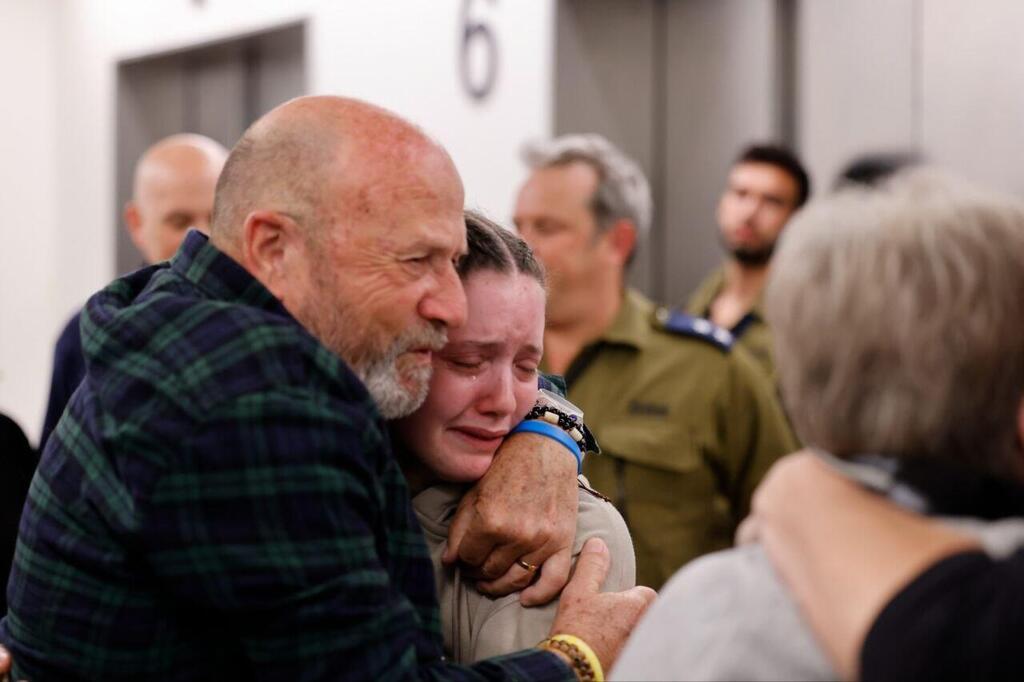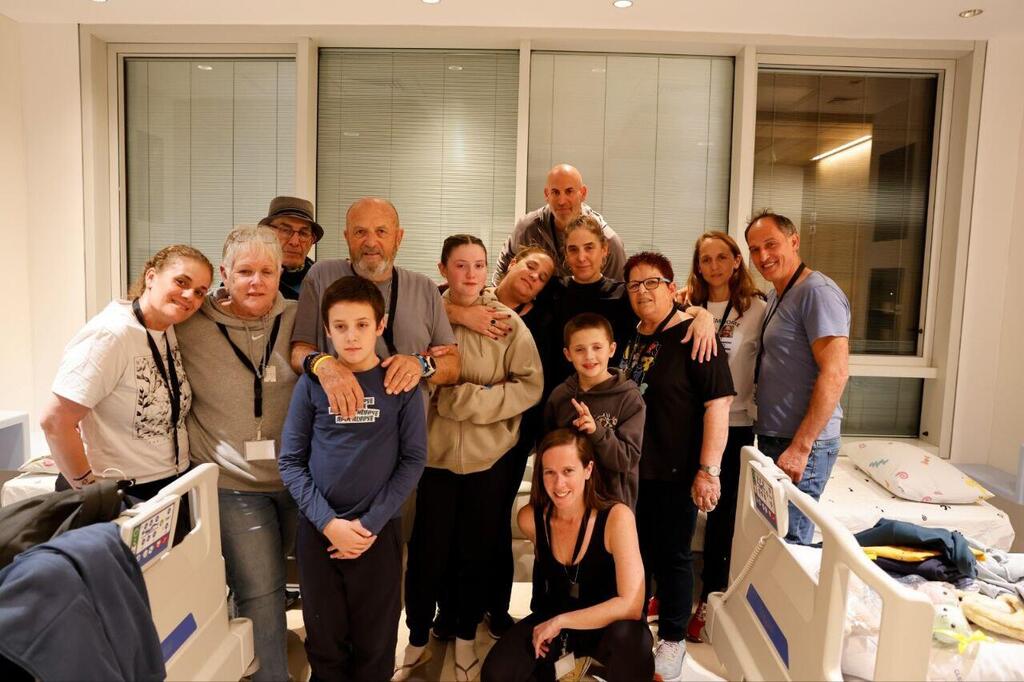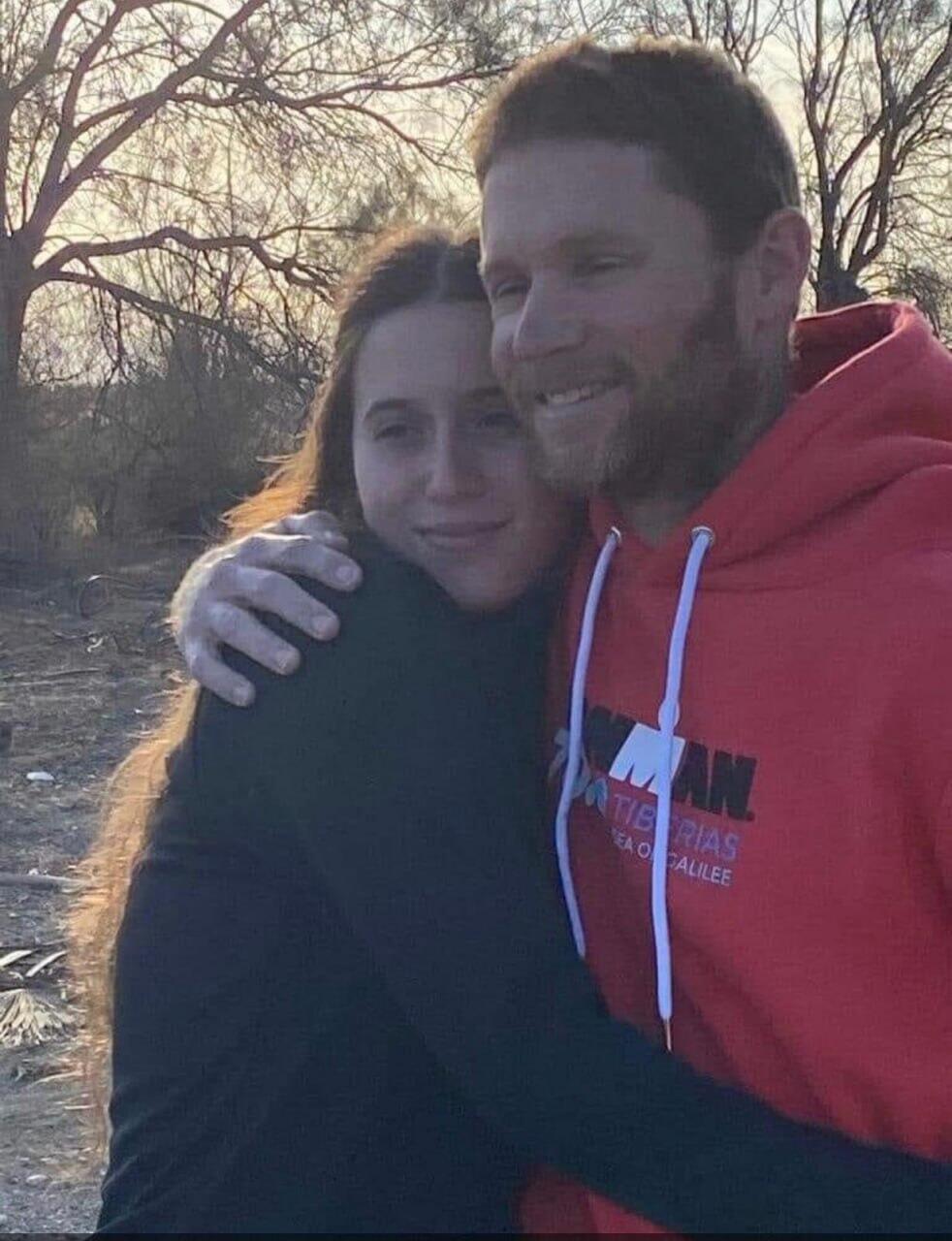Getting your Trinity Audio player ready...
"I remember when we got to the city. I simply said to my mom. ‘they're going to torture me, they're going to rape me.’ But I didn't really understand, and it seems they didn't either; they were so out of it. They told me that in a few more days I'd be home, like ‘by Tuesday you're going home’."
More stories:
This is how Agam Goldstein-Almog, 17, described in an interview with Army Radio on Thursday morning the moments she realized she had been kidnapped to the Gaza Strip, almost a month after she returned from Hamas captivity in the latest prisoner exchange.
4 View gallery


Agam Goldstein-Almog and her mother Chen at a Hanukkah candle-lighting event
(Photo: Dana Kopel)
Agam was kidnapped from Kibbutz Kfar Aza on October 7, along with her mother Chen, 48, and her two brothers Gal, 11, and Tal, 9. Her father Nadav and her older sister Yam, 20, were murdered.
"We were disconnected from what was happening," she said, even though they managed to listen to the radio. "We were sure they had given up on us, that now they wanted to win this war.
"There was hope that we would return and Dad would be waiting in a wheelchair. As for Yam, we already knew there was no chance, but for my dad, there was a small hope. But on the radio, we heard exactly what we needed to hear - they were sorry about Dad and Yam. And that was it."
She described the conversations with her mother while they were held captive, mentioning how they would exchange glances and mutually acknowledge that no one else could understand their experience.
"There are sensations the body experiences that are impossible to describe. It's total shock; no matter what I say, it won't make it any clearer,” she said.
“Both of us looking at each other, realizing there probably will never be words, always just feelings. Words are too insignificant compared to what the body feels. So that's how it was, we were looking and understanding, as trite as it may sound. We just needed to look at each other and feel that we were in the same boat, feeling the same thing and couldn't talk about it because there are no words that can describe it."
"Even now, I can’t comprehend that I was there," she added. "It feels like someone else's story, as if there never was a moment of realization about the situation. I don't know if we'll ever understand. But I remember telling my mother they were going to do something to me, and that was the moment I realized I had truly been taken from home and was now here."
Goldestein-Almog said that she was most afraid during nighttime Israeli air raids. "Despite the hardships, my greatest fear was the nightly Air Force bombings. Initially, my utmost fear was the terrorists. The war and bombings began later, once the state intervened. Over time, my fears escalated, particularly due to the intense bombings,” she said.
4 View gallery


Goldstein-Almog reunites with her loved ones after her release from captivty
(Photo: Schneider Medical Center)
She recounted that while in captivity, she dreamed of her father and sister being alive, talking and laughing. She, her mother and her two brothers remained together, and while they sometimes met other hostages, they were largely isolated. She noted that she wrote during this time, but her writings were left behind.
Goldstein-Almog said she was most worried for her brothers, Gal and Tal, in case she and her mother were hurt by Air Force bombings. She also constantly wondered whether she would live to 18.
“I kept telling myself - what, I won't make it to my 18th birthday? At least let me reach 18. As for Gal and Tal, I thought, they're so young, it's such a pity. 'Pity' is too small a word for that feeling, but really, it's just a shame, a real bummer, all the things they won't get to do, all they won't see. Everything is still ahead of them. It was harder for me thinking about the experiences they might miss out on."
'My value of life changed'
Goldstein-Almog also shared that she cooked during her captivity, preparing pita bread as well as some rice and potatoes. “While it wasn't like home cooking, we made do with what we had."
When asked what she most wanted, she responded, "To shower and to cry." She explained that she was unable to cry in captivity and continues to struggle with it even now in Israel. "I wanted to grieve, but since I returned, I haven't been able to reach that point. I can't seem to do it."
4 View gallery


Goldstein-Almog reunites with her loved ones after her release from captivty
(Photo: Schneider Medical Center)
Goldstein-Almog attested that her time in captivity also affected her negatively. "It changed many things for the worse, took away my sense of security, and instilled in me a lot of fear, worry, confusion and helplessness."
She also told that the worst part about her time in captivity was the constant transfers between different captors and locations, as each move filled her with dread over the possibility of being killed.
“I think I would want to erase that from myself, so I would never have to ask myself in life if I was about to be murdered. It's losing trust to the highest degree and becoming indifferent to it, like it's a daily question of 'are you going to kill me?' and not expecting an answer like 'no, of course not.'
“It felt as if they were saying 'if we're told to, we'll do it, but not right now.' These are purely my feelings, due to the ease with which they responded to that question. My value of life changed. Theirs was always different from ours, but mine changed after something like that."
"I can’t believe there are still people out there," she added. "It's overwhelming to grasp how people here go about their daily lives, going on the same walks, drinking the same cup of coffee, living the same lives after experiencing something that alters the very fabric of existence. I'm glad there are those who continue on with their lives; it shows a certain strength. But on the other hand, 71 days in captivity feel like one long day. It's essentially the same day. So, we keep moving forward but our thoughts linger on those still trapped there, left behind, and we want to say they are in danger."



